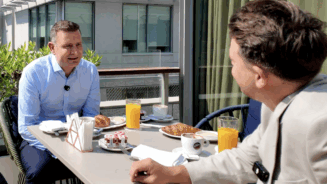On 9 April, Russia’s benchmark RTS index crashed 11% in one day, wiping millions of roubles from companies’ balance sheets. The sell-off was a result of hefty US sanctions imposed on Kremlin-linked oligarchs in response to Russia’s alleged foreign election meddling.
For Christopher Bannon, portfolio manager on Pictet Asset Management’s Russian equities fund, it was just another day at the office. “Periods of extreme uncertainty occur with reasonable frequency,” he says. “There is always an element of risk, obviously.”
The last few years have been a roller-coaster for investors in Russia. Moscow’s annexation of Crimea led to a wave of sanctions in 2014 that have cut Russian energy and defence companies off from western financing.
This summer, further sanctions have been threatened in response to claims that Russia was behind a nerve agent attack against a former spy in the English town of Salisbury.
But despite these bouts of extreme volatility, Russia remains one of the cheapest and most attractive emerging markets. The average price-to-earnings ratio on the MSCI Russia index is about seven – half of many other leading developing countries.
European investors can take their pick from about 30 active and 10 passive Ucits funds invested in 50-60 listed stocks and a raft of Russian companies have listed on foreign exchanges.
“The sanctions have not impacted the ability of funds to invest in Russian equities,” Bannon says.
The scattergun imposition of levies does, however, ensure that shareholders have a bumpy ride. The April sanctions that targeted industrial magnate Oleg Deripaska led to shares in his aluminium producer Rusal falling more than 50%.
The latest restrictions target Russian state-owned banks. Shares in Sberbank, Russia’s largest lender, have fallen more than 25% since April. Despite the dramatic sell-offs, however, both companies have continued to post healthy profits.

Energy over dependence
Russia’s economy remains overwhelmingly dependent on oil and gas. It accounts for about half of the country’s national budget and about 15% of GDP. The collapse in the price of crude pushed Russia into recession in 2015-16 but the rebound in the oil price over the last year has softened the impact of sanctions.

Moreover, investors in the country claim that efforts to curtail Russian companies access to international markets have actually had a positive impact on domestic corporate governance.
Jacob Grapengiesser, a Moscow-based emerging markets specialist at Swedish asset manager East Capital, says the squeeze on global funding has encouraged Russian companies to streamline efficiency procedures, improve balance sheets and allocate capital more effectively.
Russia’s state-owned oil companies in particular have posted strong results. Rosneft – which accounts for more than 40% of Russia’s crude production – reported a trebling of net profit and record free cash flow in the second quarter. Lukoil, Russia’s second-largest oil producer, reported a 20% jump in profits.
“Many Russian companies are paying very high dividend yields, often around 10%,” Grapengiesser says.
Both Rosneft and Lukoil have issued new dividend policies over the last 12 months. East Capital’s 2018 dividend yield expectation for Rosneft is 7.2%; while Lukoil offers a 5.5% cash dividend yield plus 4% in share buybacks – a total distribution of 9.5%.
Unsurprisingly, oil and gas dominate Russia’s exports, followed by mined minerals and metals. The country boasts huge reserves of aluminium, copper and magnesium among other natural resources.
The last four years has seen the Russian rouble fall almost 50% against the US dollar. But this slump has gradually coincided with a rebound in commodity prices and return to synchronised global growth.
“Many Russia exporters are benefiting on the revenue side by higher commodity prices but also benefiting on the cost side from the weaker rouble,” Bannon says.

Tech leads diversification
The country’s over-reliance on abundant natural resources amid widespread state ownership is a source of strength but also Russia’s greatest structural weakness.
“The dominance of the state in companies is great and the entrepreneurial spirit is weak,” says Naomi Waistell, emerging market equities portfolio manager at Newton Investment Management. “The country is in need of structural reforms.”
Russia is changing, assures Grapengiesser. “The diversification away from natural resources was never going to happen overnight, but it is happening,” he says. “You can see it everywhere.”
Initial public offerings (IPOs) of Russian companies in London and Moscow raised $2.8bn (£2.1bn, €2.4bn) last year – the best year since 2011.
A number of these fast-growing new listed companies, which are not exposed to the risks of state ownership, can be found in the innovative technology sector.
Google and Facebook may dominate search and social media in the English-speaking west but when English is not the first language local players can still dominate market share.
Moscow-based internet group Mail.ru began life as an e-mail service and has developed into a corporate giant in the Russian-speaking segment of the internet. It owns social network VKontakte – Russia’s equivalent of Facebook – which boasts more than 500 million users. Mail.ru’s rapid expansion has drawn comparisons with Chinese tech giant Tencent, one of its shareholders.
Yandex, meanwhile, is Russia’s dominant search engine. It has more than 50% market share, eclipsing even Google. The Russian tech group has seen its share of mobile search jump over the last year after the country’s regulator sanctioned Google over unfair practices, presaging a similar case in the EU this year. Customers in Russia are given a choice as to what will be their default search engine when they buy a new Android smartphone.
“Yandex has been enjoying spectacular growth,” Grapengiesser says.

Active management pays
Foreign investors in Russia can, of course, choose to invest in active or passive funds. But while index-tracking ETFs may offer lower fees, Morningstar analyst Lena Tsymbaluk argues that in a market as idiosyncratic and unpredictable as Russia it pays to plump for active managers.
Leading indices, such as the RTS index and MSCI Russia, for example, are heavily skewed towards energy groups and the Russian state, ignoring tech and consumer firms listed in London or New York (such as Mail.ru and Yandex).
“A whole host Russian companies traded on the LSE or the Nasdaq are not captured by indices,” Tsymbaluk says.
As a result, Russia-focused passive funds tend to be highly concentrated at the sector and stock level. Domestic giants like Sberbank or Gazprom can easily make up one fifth of the portfolio.
“The indices in Russia give you a relatively bad impression of the underlying economy and what might be interesting to investors,” Grapengiesser says.
Many active managers benchmark against the MSCI Russia 10/40 index, which caps any one company’s exposure at 10%, limiting exposure to large caps. No ETFs available to European investors, however, currently track the Russia MSCI 10/40.
“In Russia active management pays off because you can diversify risk and go lower down the market,” Tsymbaluk says. “Moreover, active managers are able screen corporate governance issues which are always likely to arise in Russia.”

Volatility and opportunity
In Russia, however, corporate governance issues can sometimes seem like the least of investors’ worries.
Over the last year, periods of diplomatic normality have been followed by outrage and opprobrium in equal measure. Election meddling. The Skripal poisoning. A successful World Cup. The Helsinki summit. Winston Churchill’s famous description of Russia as ‘a riddle wrapped in a mystery inside an enigma’ never seemed more apposite.
“Investors in Russia need to focus on the fundamentals and not get too confused by the politics,” Grapengiesser says. “You need to take a slightly longer-term horizon and be comfortable with a bit of volatility.”
The sanctions have certainly scared some investors away, knocking about 50-100 basis points off annual GDP growth. But Russia’s macroeconomic fundamentals remain solid and many corporates are still growing at more-or-less the same pace.
“Despite all the noise about further sanctions ahead of the mid-term Congressional elections in November, the US sanctions regime is unlikely to get much worse,” Grapengiesser adds.
Banking giant Sberbank’s earnings, for example, have been scarcely affected by recent sanctions and despite the slump in its share price, generates 22% ROE and a dividend yield of more than 10%.
“It pays to keep a sensible head and an eye on valuations,” says Bannon. “It is often in times of uncertainty that the share price overshoots and that presents entry opportunities.”
Grapengiesser adds: “Now is probably the time to invest in if you want to make good returns because Russian companies are very cheap in terms of valuation multiples. If investors can accept some volatility, then they are going to be handsomely rewarded.”
For more insight on continental European investment, please click on www.expertinvestoreurope.com




